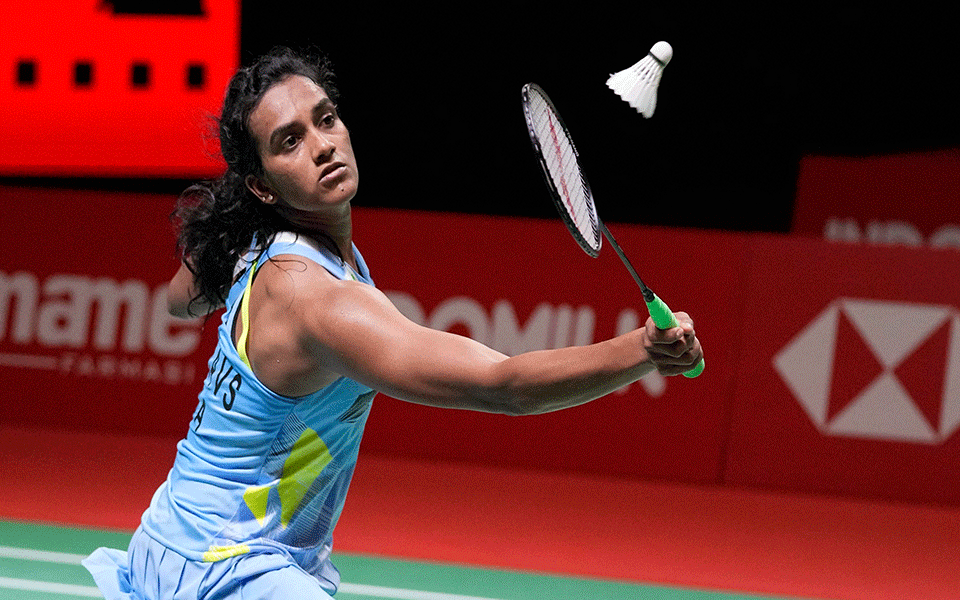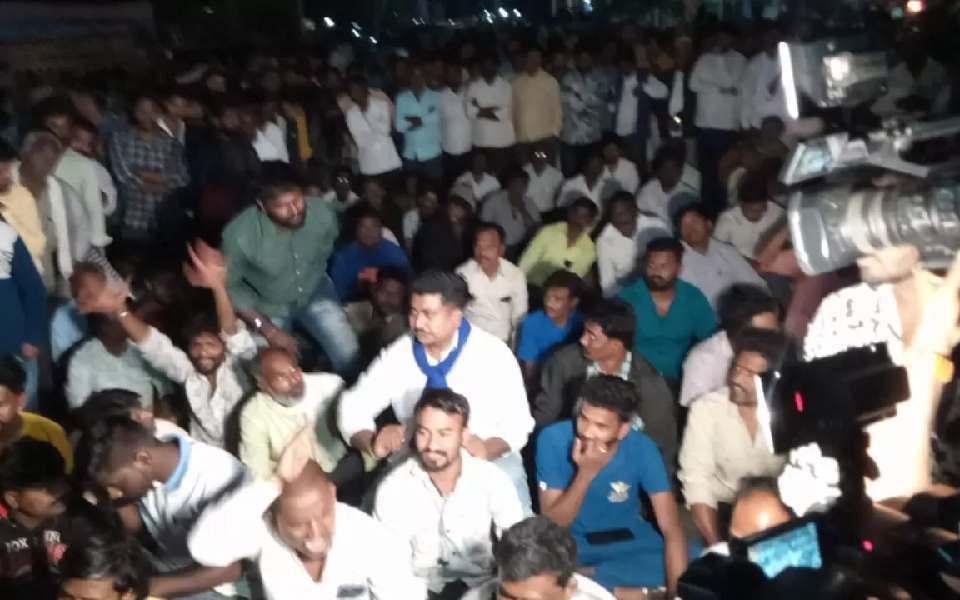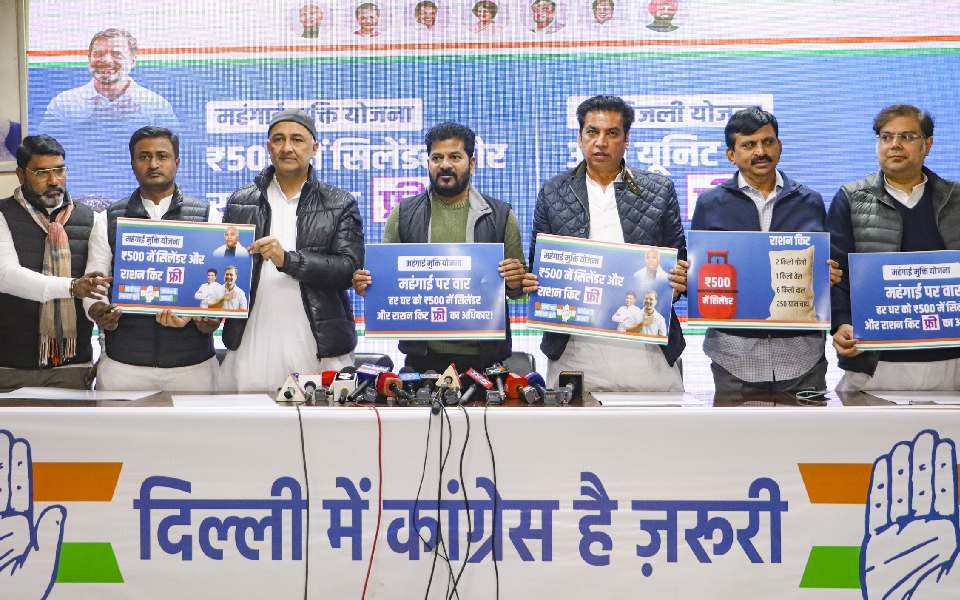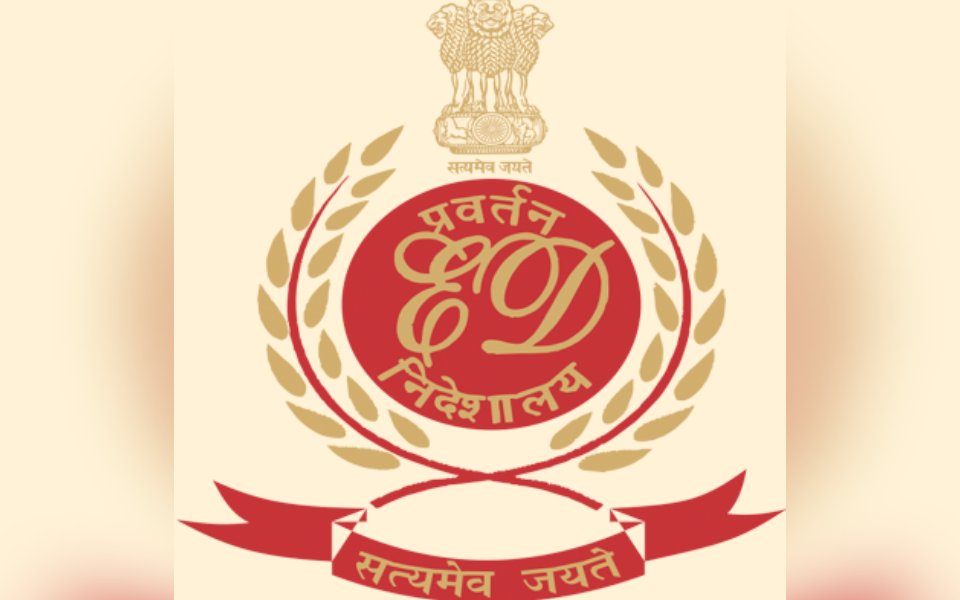Singapore(PTI): Indian shuttler PV Sindhu stormed into the Singapore Open title clash with a commanding win over lower-ranked Japanese Saena Kawakami in the women's singles semi-final, here on Saturday.
Sindhu, a double Olympic medallist, who had claimed two Super 300 titles at Syed Modi International and Swiss Open this year, prevailed 21-15 21-7 over world number 38 Kawakami in a 32-minute last-four clash.
The 27-year-old from Hyderabad, who has also claimed a bronze at the Asian Championships this year, is now one win away from her maiden Super 500 title of the 2022 season.
In the finals, the third seeded Indian will face China's 22-year-old Wang Zhi Yi, the reigning Asian Championships gold medallist, who was also part of the Uber Cup team, which won the silver at Bangkok this year. Wang beat Japan's Ohori Aya 21-14 21-14.
Sindhu had defeated world number 11 Wang in their only meeting at the All England Championships this year. A two-time World Junior Champion and a Youth Olympics silver medallist, Wang had also reached the finals of Indonesia Open Super 1000 in June.
Sindhu came into the match with a 2-0 head-to-head record, having played her last at the 2018 China Open. Kawakami had received a walk-over from top-seed Tai Tzu Ying of Chinese Taipei in the second round.
A former world number 15, Kawakami, winner of the 2019 Orleans Masters and a finalist at Swiss Open the same year, was a part of the Japanese women's team that won the bronze medal in May this year. The Japanese had played just three events last year and it was her fifth tournament in 2022.
Sindhu, a former world champion, looked in complete command against Kawakami, who just couldn't control the shuttle and was buried in a heap of errors during the lop-sided match.
Early on, Sindhu started with her whipping smashes but the drift inside the hall, made decision making difficult and also at times, the precision was lacking.
But the power in her stroke-play helped the Indian moved to a healthy three-point lead at the break.
The 24-year-old Japanese, however, started putting the shuttle in from difficult positions to draw parity. The match came alive with both fighting for each point.
Sindhu also won two video referrals, punished a weak high lift and also made good calls at the baseline to move to 18-14. A power-packed smash and then two unforced errors by Kawakami helped Sindhu seal the opening game comfortably.
Kawakami's struggles continued in the second game as she failed to control the shuttle and conceded a 0-5 early lead to her fancied rival.
Sindhu just had to keep engaging her rival in the rallies and patiently wait for her mistakes. A frustrated Kawakami just could wryly smile as Sindhu first grabbed a 11-4 lead at the mid-game interval and then zoomed to 17-5 in a jiffy.
The Japanese had no answer to Sindhu's attacking forehand returns and deft backhand flicks which opened up a decisive 19-6 lead for her.
Sindhu sent one long but next unleashed a whipping smash from the baseline which her opponent could only sent to the net. When Kawakami's return finally went out again, Sindhu pumped her fist to announce her entry into the finals.
The two-time Commonwealth Games medallist, will lead the Indian charge at the quadrennial event in Birmingham starting July 28.
Let the Truth be known. If you read VB and like VB, please be a VB Supporter and Help us deliver the Truth to one and all.
Bidar: A major protest erupted in front of the district government hospital following a deadly shooting incident involving State Bank of India ATM staff. One staff member was killed, and another critically injured when unidentified assailants opened fire as they attempted to deposit money at the ATM.
The incident drew public outrage, with family members of the victims and local residents gathering outside the hospital. They demanded immediate compensation, job security for a family member, and expedited post-mortem procedures, criticizing the absence of senior officials and government representatives earlier in the day.
ALSO READ: Robbers shoot and kill security staff, decamp with Rs 93 lakh SBI ATM cash in Bidar
MP Sagar Khandre later arrived to offer condolences and address the protesters' concerns. Responding to demands, he assured that he would discuss the matter with the Chief Minister to arrange for two acres of land and a government job for the victim’s family. Additionally, he confirmed that since the case falls under the Atrocity Act, the Social Welfare Department would provide Rs. 8 lakh in compensation.
Following his assurances, the protest was called off, bringing temporary relief to the tense situation. Police investigations into the robbery and shooting are ongoing, with senior officials, including IGP Ajay Hiroli, overseeing the case.





